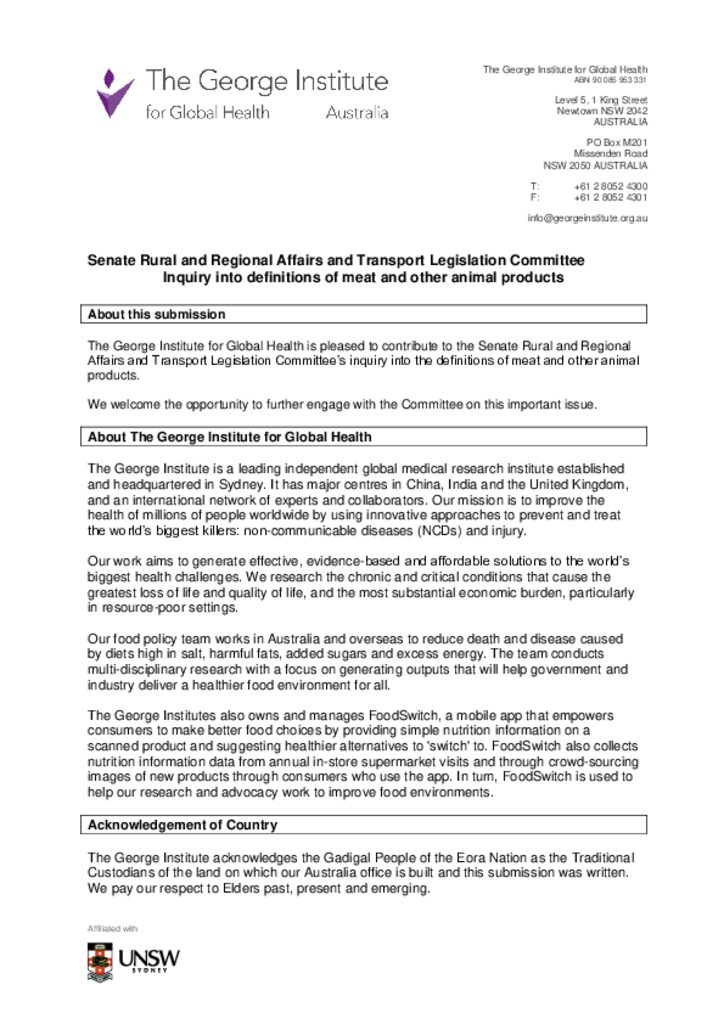
Submission to the Senate inquiry on definitions of meat and other animal products
The George Institute for Global Health made a submission to the inquiry on definitions of meat and other animal products by the Senate Rural and Regional Affairs and Transport Legislation Committee. Our submission made several observations and recommendations to the committee, noting that in Australia over recent decades, the consumption of meat has decreased and meat alternatives have increased, such as plant-based and synthetic protein products.
The George Institute believes more research should be undertaken to better understand the impact of product labelling by manufactured plant-based or synthetic protein brands on sales of meat products. We support the continued use of meat-based descriptors for plant-based or synthetic protein products, and recommend regulatory improvements including a requirement that meat-based descriptors can only be used if the label also clearly states that it is a meat-free product.
We understand manufactured plant-based or synthetic protein products may have immediate and long-term social and economic impacts on primary industries, such as livestock producers and individuals across regional, rural and remote areas. We believe there is opportunity for primary industries to increase farming and agriculture practices towards ingredients found in plant-based meat alternatives to reduce reliance on imported ingredients.
Research by The George Institute shows heavily manufactured protein products can be high in sodium. These products are also ultra-processed, potentially linking them to higher rates of obesity, high blood pressure and heart disease. However, The George Institute notes there is little research into the specific links between manufactured protein products and health outcomes. On the other hand, meat products continued to be consumed in excess in Australia. Reducing population intakes of meat, in particular processed meat, is important for improving the health of Australians. These manufactured plant-based or synthetic protein products can provide variety and nutritional support for people who follow a vegetarian or vegan diet or those looking to reduce their meat intake for health, environmental, ethical or financial reasons.
We believe placement of manufactured plant-based or synthetic protein products in retail settings, such as supermarkets, could also have an impact on the Australian meat category brand investment. We recommend that the placement of these products in the retail environment should be considered as a factor when setting policies around these products.
The George Institute believes the impact of meat on planetary health should be considered within this inquiry due to the major contribution of meat consumption to global warming. The George Institute’s FoodSwitch app, a mobile app that provides simple nutrition information on a scanned product and suggesting healthier alternatives to 'switch' to, now includes a ‘Planetary Heath Rating’. This rating reveals the greenhouse gas emissions of different categories of foods and beverages in an easy-to-interpret ‘star rating’ (based on the current Health Star Rating System). This information will further empower consumers to make better choices when they shop.





